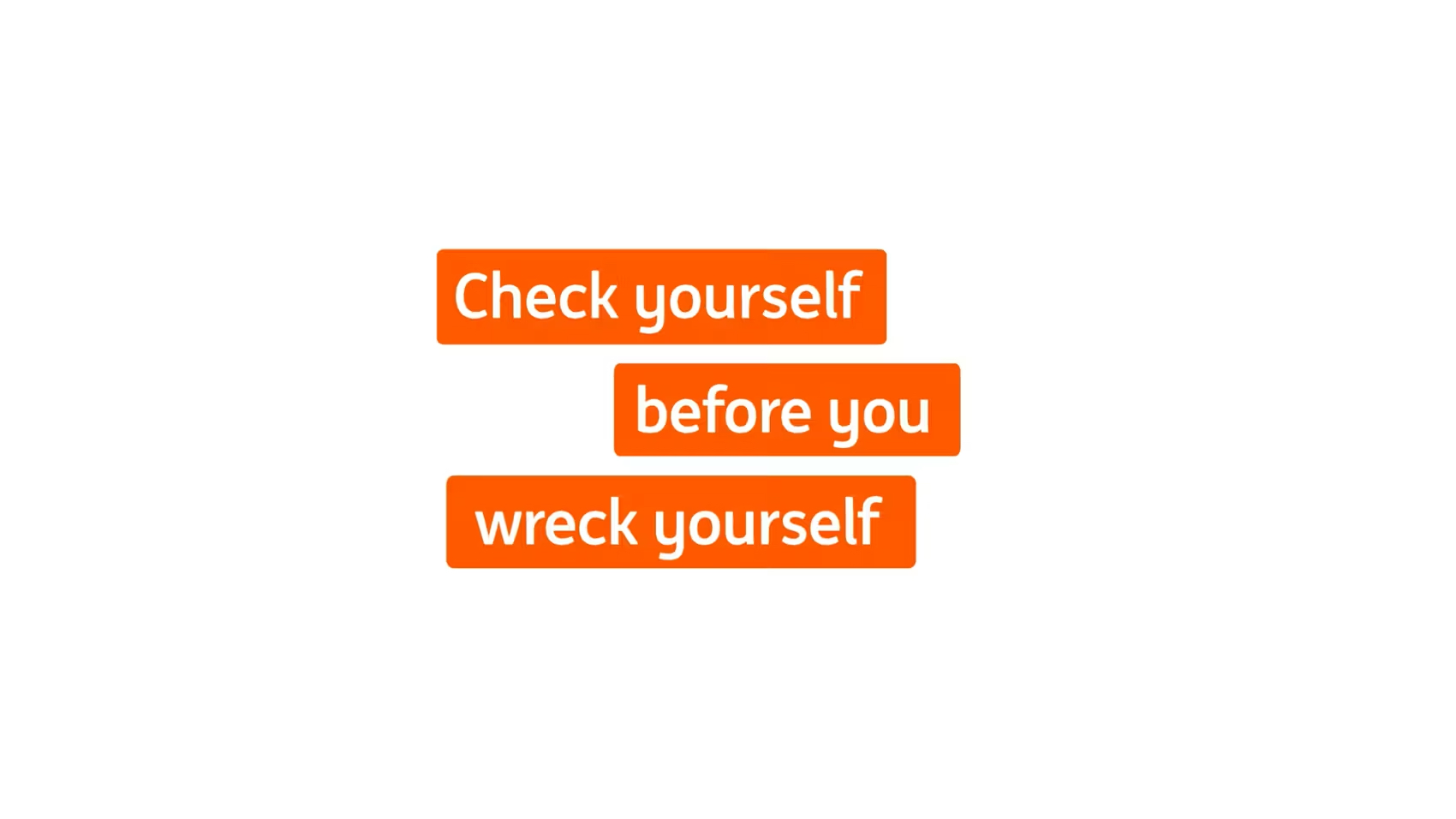Meet the Savers: Round-up Mark.
Meet Mark, who saves a little extra each day. Find out how Everyday round ...

Before you sign on the dotted line, know exactly what you need to cross off your pre-purchase checklist.
In relation to our credit products, you should consider our Terms and Conditions booklet, Fees and Limits Schedule, Credit Guide and Key Facts Sheet available at ing.com.au when deciding whether to acquire, or to continue to hold, a credit product.

You did it! Whether you bid the winning bid on auction day or you’ve made an offer the seller couldn’t refuse, you’re one huge step closer to the house of your dreams. But it’s not time to pop the bubbles just yet. Here’s what happens next, from the moment your offer is accepted right through to settlement.
Congrats, you! But heads up: in a private treaty, there’s a risk of what some people call ‘gazumping’, which is when a higher offer comes in after yours has been accepted and the agent is obligated to pass it on to the seller. So be prepared to increase your offer if you need to – or walk away if the higher price is out of your budget. (Note: You can’t be gazumped once both parties have signed and exchanged the contract for sale if this is part of the process of sale in that state.) If you’re at auction, be ready to sign a contract and pay a deposit (around 10%) up front. (Remember, there’s usually no cooling-off period at auction, find out more about that in a sec.)
This is when things get official. You’re almost ready to sign (after you do some double-checking – see the next step). After all, no sale is a done deal until you’ve signed and exchanged contracts with the seller and paid the deposit (if contract exchange is part of the process in the state you are purchasing in). But first, consider getting those contracts reviewed by a conveyancer or solicitor. The pace of this step can differ between sale types: for a private treaty, you might take time negotiating changes or adding conditions to the contract. If you’re the winning bidder at an auction, you might be able to negotiate some aspects of the contract, like the deposit amount, but most likely you’re signing on the dotted line right then and there (unless you were able to negotiate some terms prior to auction, speak to your solicitor or conveyancer). Around this time, make sure to take note of any conditions on the contract that you’ll need to fulfil between now and settlement.
Just that signature and we’re done? Not exactly. Now’s a good time to double-check the details of the contract before you do go ahead and sign. You’ve been through this with your conveyancer but it’s worth cross-checking things like zoning and council certificates (how the property is zoned can affect how you use it); nitty-gritty stuff like drainage diagrams or a plan of the land; and importantly, the title, which confirms who currently owns the property and whether it has any encumbrances (such as ‘easements’, like a shared driveway or access to essential infrastructure that others need to use and can’t be blocked, or other restrictions). This double-checking step is part-and-parcel with the step of reading and signing the contract.
A cooling what now? In a private treaty, this is a set amount of time you have to change your mind and withdraw from the sale without big legal or financial consequences. The period starts on the day you sign the contract, and the amount of time you have varies from State to State (again if contract exchange is part of the process in the state you are purchasing in). It can be anything from no time at all, like in Tassie, to five business days in New South Wales, Queensland and the ACT. (Sellers may sometimes ask for the cooling-off period to be waived so that the contract for sale is binding immediately on its signing and exchange.) At auction, though, a cooling-off period is usually not a thing, so be warned: being the winning bidder comes with a commitment to buy then and there.
You might have rocked the auction with pre-approval in your pocket or succeeded at private treaty negotiations with an offer subject to finance – now what? First up, send your lender a copy of the contract of sale to get the ball rolling. Try and have all the most recent and relevant documents at the ready, too, like your ID, details of your income, and a breakdown of your assets and liabilities (it’s likely your lender will have given you a heads-up about which documents you’ll need for this step).
Keep in mind that pre-approval and subject-to-finance are a bit different, too. For one, pre-approval means the lender has agreed to loan you the money in principle but hasn’t committed 100%. They’ll factor in a few things before your pre-approval can become full approval, such as changes to your circumstances (like a loss of employment), financial improvements you need to make (maybe paying down a little more of that credit card debt or reducing the maximum limit), a property valuation, and more. If you’ve made an offer subject to finance, this means you have time to organise the loan after you’ve made the offer. If your finance falls through, you can end the contract. (Note: some sellers may not accept your offer to buy their property if it is subject to finance.)
If you’ve made a private treaty offer that’s subject to inspections (meaning you’ll officially buy once you’re satisfied with any building, pest or surveyors’ inspections), now’s the time to get them done. If they’re all good: woo! If they come back unsatisfactory, you might be able to back out.
It’s been a few weeks since you signed on the dotted line (maybe four, maybe more!) but today’s THE day. Today, your solicitor or conveyancer meets with your lender and the seller’s representatives to hand over documents, transfer the funds and complete the sale to make the home officially yours. Not to go too deep, but your lender will register a mortgage against the property when they transfer the funds to the seller. And your solicitor or conveyancer will make sure that any existing mortgage on the property is discharged (removed, basically), that anyone else with rights to the property is out of the picture and that the transfer of the property is registered in your name at the land registry or titles office (these have different names in different States).
Now *deep breath* unlock the door and step inside your new home.
Important information
Any advice in this article does not take into account your objectives, financial situation or needs, and you should consider whether it is appropriate for you. Before making a decision in relation to our home loan products, you should read the Terms and Conditions booklet and Fees and Limits schedule, available at ing.com.au or by calling 133 464. All applications for credit are subject to ING’s credit approval criteria. Fees and charges apply. ING is a business name of ING Bank (Australia) Limited ABN 24 000 893 292, AFSL and Australian Credit Licence 229823.

So, you’ve found the perfect place to make your first home. This will probably be one of the most intense times in your life – intense and exhilarating! It’s that time between falling in love and committing to buy, either at auction or private treaty, where time compresses and so, so much happens. It can feel overwhelming, a whirlwind of emotions and required brain power. Before you take this step, we thought we’d share some things to think about. We asked established real estate agent Kelly Santos to give us a zoomed-in picture of this part of the process, to help you make the right moves when you get there.
Buying your first home can be overwhelming, and there’s a lot of emotion involved. So it’s key to do extensive property research and your due diligence. You really want to assess whether the property is right for you. I always say to buyers that you’re never going to get a 10-out-of-10 property, but if it ticks 8 of those 10 boxes, go for it. It’s also easy to fly through inspections and get really excited but not actually look at things critically. So take a checklist with you.
And it’s true that a lot of first home buyers can often be wary of real estate agents, but it’s really important to build a relationship with them so you can ask the right questions. So much of the home-buying process benefits from communication with your agent.
If you’ve found a nice place that’s ticking all the boxes from your checklist, the next thing you want to do is get a strata report, or your pest and building report, and review it.
A strata report is for apartments or townhouses. It will tell you the financials of the block and give you an outline of how the building is maintained – what’s been done so far, what’s coming up, and how much is sitting in the sinking fund or the capital works fund. That fund holds the money that is used when the building needs maintenance, repair or improvements.
With a freestanding home, you might need building and pest reports. These evaluate if the building itself is structurally sound and if there is anything else that’s needed, and the pest reports outline if there has been any termite damage or other pest problems.
If those reports check out, and you’re going to put in an offer or go to bid at auction, then it’s time to get your contract of sale reviewed by a conveyancer or solicitor. And when a property is not being sold at auction, it may be possible to offer a contract subject to satisfactory building and pest inspections.
Don’t try and do it yourself! It really needs to be reviewed by a conveyancer or solicitor. Sure, you can look for key things – say, if you’re buying an apartment, you can see the strata plan and it can tell you the size of the apartment, what comes on title, and so on. But ultimately, with clauses and the legal details, a solicitor or conveyancer is worth every single dollar. Leave this to the experts.
First home buyers often have ‘conditional’ home loan approval, and that can mean your offer will be subject to finance. In this case, this means you shouldn’t be buying at an auction. If you want to, you really want to double check with your lender that you’re in a position to do so.
So, in a way, a private treaty tends to be a nicer way for first home buyers to buy, but making an offer kicks off the negotiation. This is where it becomes really important to be having conversations with the real estate agent. You want to say things like, “Great, we love the property. What’s the price feedback been on the property?” And: “What would take it off the market today? We’re keen.”
This step will take you further down the road to snagging that property before someone else. Keep in mind that, depending on the market and what state you’re buying in, there are different ways to negotiate at private treaty, like expressions of interest or, in some cases, a best-and-final offer scenario where an agent can say, “We have a few parties interested in the property. To condense the negotiation process, by 5pm today put your best-and-final offer forward in a closed envelope.”
Be prepared for the negotiation. I always say to a first home buyer: “Leave yourself a bit of wiggle room. You want to be able to have a bit of rope to play with.” It’s very rare that the first offer that you put forward is going to be accepted.
And once you make that offer, be ready for things to move quickly. You want to make sure that you’ve given your solicitor or conveyancer notice with something like: “Hey, I’m about to put in an offer on a property. My intention is to buy it. Can you review the contract?”
It’s all about making sure that all your ducks are in a row. You can get so caught up in the negotiation process that it’s important to step back and make sure you’re factoring in things like conveyancer and solicitor costs, stamp duty & transfer fees, your building reports or your strata reports, any levies and maintenance costs. Keep these in mind once the negotiation process starts.
When that hammer falls and you’re the successful bidder, there’s no turning back. You have to be prepared to pay the agreed deposit (usually between 5 and 10 per cent) . You need to make sure you have access to those funds in the form of a bank cheque or electronic funds transfer to provide that straight away to the agent. You will be signing the contract then and there, too. So make sure that any changes to the contract have been agreed upon prior to the auction. The last thing you want to do after successfully winning the auction is say, “Oh, we want to make changes to the contract.” It’s too late. You have to have those changes agreed to before the auction.
In the end, whether you’re buying at auction or private treaty, and wherever you are in the process, I always say to get a second opinion from a family member or someone who has done it before. It’s always smart to get another opinion.
Also, connect with a good real estate agent and help them guide you. A good agent loves helping first home buyers. I’ve got a lot of clients who were first home buyers and we’ve now upgraded from their one-bedroom apartments to freestanding homes with kids in tow. The more you understand from them, the better your position will be to put forward an attractive offer to the seller.
Important information
Any advice in this article does not take into account your objectives, financial situation or needs, and you should consider whether it is appropriate for you. This does not constitute tax advice. Please seek your own independent tax advice accordingly. Before making a decision in relation to our home loan products, you should read the Terms and Conditions booklet and Fees and Limits schedule, available at ing.com.au or by calling 133 464. All applications for credit are subject to ING’s credit approval criteria. Fees and charges apply. ING is a business name of ING Bank (Australia) Limited ABN 24 000 893 292, AFSL and Australian Credit Licence 229823.
ING is not responsible for any services provided by third parties nor does ING accept any liability or responsibility arising in any way from any products or services supplied by the third parties or any opinions expressed by them.